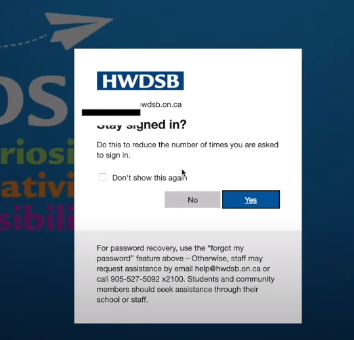Hackathons or Headscratchers? The Pros and Cons of Collaborative App Development

In app development, two distinct paths beckon: solo development and collaborative hackathons. Both hold immense potential, yet each carries its own set of challenges and rewards. So, before you plunge headfirst into a hackathon frenzy or take help from the leading mobile app development company in Dallas, let’s discuss it in detail.
Key Ingredients for a Successful Industrial Hackathon
So, how does your company host a successful hackathon that delivers real-world value? Here are some key ingredients:
- Define the Challenge: Clearly articulate the problem you want to solve. It ensures relevancy to your industry and participants.
- Gather the Right Mix: Invite a diverse pool of participants with varying skills and backgrounds to foster cross-disciplinary collaboration.
- Mentorship Matters: Provide access to industry experts and mentors who can guide teams and offer valuable insights.
- Fuel the Fire: Make it fun! Create a stimulating environment with interactive workshops, engaging activities, and opportunities for networking.
- Beyond the Code: Don’t just focus on technical solutions. Encourage teams to consider the practicalities of implementation and market viability.
- Follow-Up for Impact: Don’t let the momentum fade. Identify promising ideas, provide ongoing support, and help winning teams develop their solutions into tangible outcomes.
Collaborative Cadence: The Hackathon Hype
Hackathons – those electrifying melting pots of caffeine, code, and camaraderie – offer a unique brand of app development magic. Let’s explore it in detail:
Pros:
- Rapid Prototyping: Time is compressed, forcing quick decisions and fast execution. Ideas morph into functional prototypes at breakneck speed, accelerating the learning curve and revealing potential flaws early on.
- Cross-pollination of Expertise: Hackathons blur the lines between disciplines. Developers bounce ideas off designers; marketers brainstorm alongside coders. This results in apps that are not just technically sound but also user-friendly and market-ready.
- Instant Feedback Loop: With hundreds of peers, mentors, and potential users around, your app receives instant feedback. It will help you refine your concept and tailor it to real-world needs.
- Networking Nirvana: Hackathons are breeding grounds for connections. You form bonds with potential co-founders, investors, and industry veterans, paving the way for future collaborations and career opportunities.
Cons:
- Sleepless Slog: Be prepared for tired eyes and adrenaline-fueled nights. Hackathons are intense, demanding sustained focus and energy, which can take a toll on your well-being.
- Chaotic Camaraderie: Working with diverse personalities under pressure can lead to communication breakdowns and creative clashes. Managing various egos and ensuring everyone’s voice is heard requires strong leadership and diplomacy.
- Short-Term Focus: Hackathons excel at quick prototypes but may not be ideal for complex, long-term app development projects. Maintaining momentum and motivation after the initial burst can be challenging.
- Intellectual Property Woes: Navigating ownership rights and code contributions within a hackathon team can be tricky. Ensure that clear agreements are in place to avoid future intellectual property disputes.
Solo Symphony: The Allure of Independence
For some app developers, the solitary path holds its charm. Solo development offers unmatched autonomy and deep creative control.
Pros:
- Unbridled Ownership: You are the captain of your app’s destiny. Every decision, every line of code, is yours to control. It shapes the final product exactly as you envisioned.
- Deep Dive of Discovery: Solo development forces you to become a jack-of-all-trades, mastering various aspects of app building beyond your specialty, like mobile app database selection. This fosters adaptability and broadens your skill set.
- Sustainable Pace: You set the tempo and define your deadlines. No need to conform to hackathon time constraints. It will allow for a more balanced and sustainable development process.
- Profound Focus: Free from the distractions of group dynamics, you can delve into the minutiae of your app code. It will help you achieve laser-sharp focus and maximize your coding efficiency.
Cons:
- Echo Chamber of Ideas: Without diverse perspectives, your app can fall victim to blind spots and biases. Feedback and peer review are crucial for refining your concepts and ensuring market viability.
- Motivation Marathon: Staying motivated and disciplined within the solitary confines of your workspace can be challenging. Procrastination becomes a tempting siren, and overcoming roadblocks can feel like a solo trek through a mental desert.
- Technical Bottlenecks: Solo developers may need help with technical hurdles outside their expertise. Finding solutions or seeking timely assistance can be easy with a readily available team to bounce ideas off or collaborate with.
- Marketing Maze: Launching an app is just half the battle. Solo developers often need more networks and resources to market their creations effectively. It will hinder its reach and potential success.
Finding Your Perfect Fit: Hack or Haven?
Ultimately, the choice between hackathons and solo development boils down to your personality, project scope, and available resources.
- For rapid prototyping, building diverse skill sets, and craving instant feedback, hackathons offer an electrifying launchpad.
- But if you value ultimate control, deep focus, and sustainable development, the solo path may be your sanctuary.
Bottom Line!
There’s no one-size-fits-all solution. You can even blend both approaches, participating in hackathons for initial brainstorming and then refining.




